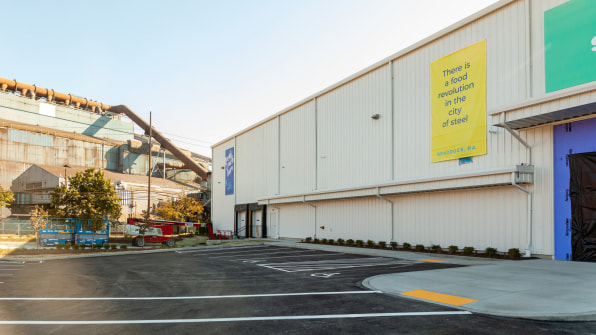Times Investigation

Footage from farms in Lincolnshire and Devon appears to show chickens that are lame and struggling to stand or walk, as well as birds with red, raw skin.
The chickens are of a specific breed known as Ross 308, developed through genetic selection to grow quickly. They can gain up to 95 grams a day and take only about 35 days to reach maturity.
Using fast-growing chicken breeds, which account for most of chickens farmed in the UK, allows the industry to maximise production and profits.

Animal welfare experts say the way the chickens are bred is unethical, and that their rapid weight gain often contributes to their suffering as well as to some of the most severe welfare problems, including chronic leg disorders and heart attacks.
The footage, obtained by the animal welfare group Open Cages, will increase pressure on retailers and restaurants to adopt new welfare standards. Chicken is the most popular meat consumed in the UK, with 2.7 million eaten daily. The British Poultry Council said that consumption was rising by 2 to 3 per cent a year and had risen by about 20 per cent in the past decade.
Chicken is growing in popularity because it is perceived as affordable, healthier than red meat and relatively uncontroversial among religious groups, unlike pork. Chicken also has a lower carbon footprint than red meat.
As demand increases, producers appear to have adopted more aggressive farming practices. Chicken growth rates have quadrupled in the past 60 years from 25g to up to 100g a day. Some retailers sell whole birds for less than £3.
Slower-growing breeds tend to be slaughtered at 56 days old, compared with 35 days for fast-growing breeds. The latter account for most of the one billion chickens reared for meat in the UK annually in giant sheds containing up to 40,000 birds. While several companies including KFC, Waitrose and M&S have signed the “better chicken commitment” that requires them to switch to using slower-growing breeds by 2026, major supermarkets have been slow to follow suit.
The new footage was shot in February at Swanhams Farm, near Tiverton in Devon, run by Hook 2 Sisters, and at Barr Farm, Billinghay, Lincolnshire, run by Moy Park, in April and May.
Andrew Knight, professor of animal welfare and ethics at the University of Winchester, said the footage from Barr Farm showed “a number of meat chickens with serious mobility problems. One seemed to have some difficulty standing and in remaining upright. One was limping, markedly favouring its right leg. These signs were consistent with significant pain.”
He said another bird at Barr Farm had a blackened area of skin on its ankle consistent with pododermatitis, an inflammation of the skin that can be caused by contact with material soaked in urine and faeces. He said sheds were usually not cleaned until birds had been removed for slaughter.
Kate Parkes, senior scientific officer at the RSPCA, said the Barr Farm footage reflected modern production of meat chicken in which “achieving the greatest meat yield in the shortest time continues to be the primary focus”.
She added: “Upsettingly in this footage there were a number of birds that were lame or had obvious gait abnormalities and should have been put to sleep to end their suffering.”
Peter Stevenson, chief policy adviser at Compassion in World Farming, said the footage at Swanhams Farm showed several birds with “extreme walking difficulties [which] could be caused either by infectious agents or by the birds being bred to grow so quickly that their legs cannot support their bodies”.
He added that the film “highlights the extreme suffering that is all too common in UK chicken production” and called on the government to ban the use of fast-growing chickens.
A 2016 European Commission report on the impact of genetic selection on chicken welfare said that: “The bones of a fast-growing selected strain are more porous and less mineralised than those of a slower-growing control strain. Furthermore, studies showed that slow-growing broilers reared until 56 days had significantly better walking ability than others reared until 42 days of age.”
Hook 2 Sisters said the birds shown in the footage had been “clinically assessed three times over 30 days by veterinary officials and no welfare issues were identified at any point”.
Swanhams Farm had been “inspected for compliance” by vets and by Red Tractor auditors twice in March and “again, both identified no welfare issues,” it added. A farm spokesman said animal welfare was a top priority.
Moy Park said: “Following a robust assessment of the farm and a review of the footage by an experienced veterinary surgeon specialising in poultry, we are confident that the birds are displaying natural behaviours and have normal feather coverage and skin coloration for their development stage.”
It said a small number of birds in footage “appear to be presenting signs of lameness” but added that “lameness can affect all livestock and is caused by a number of factors. It is not specific to any particular breed or rearing system.”
The company added: “All recent independent audits have shown this farm upholds high welfare standards. We continually monitor our farms to ensure these standards are adhered to.”
Tesco said it sold chicken from Moy Park but stopped taking chicken from Swanhams last year.
Tesco, Aldi and Sainsbury’s said they were committed to animal welfare and were investigating the footage.



